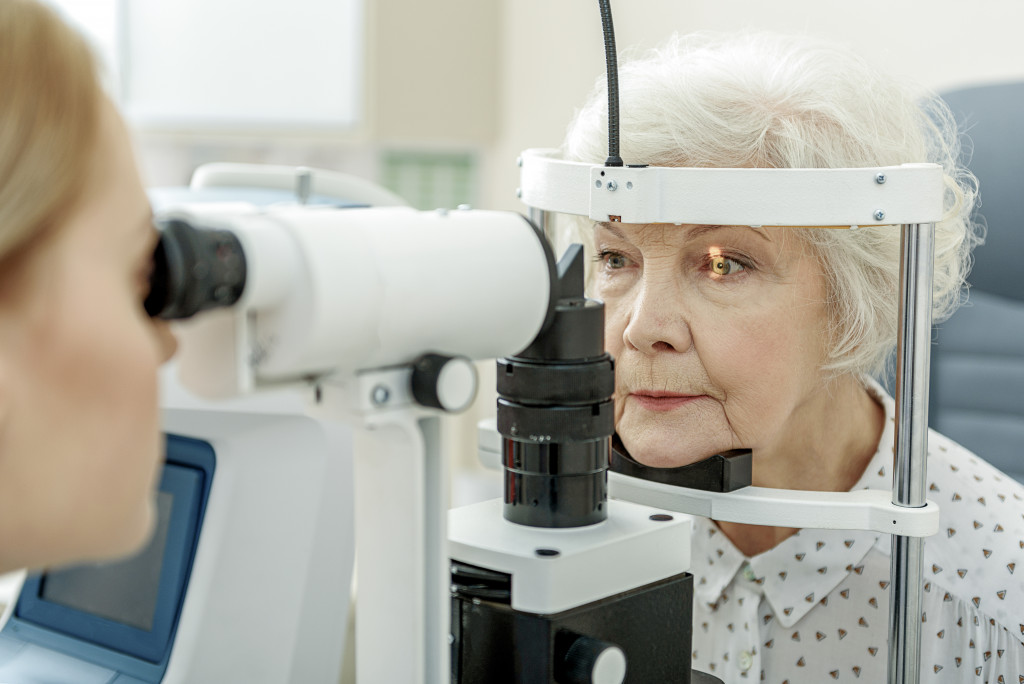As women age, they are more likely to experience several health conditions that can impact their quality of life. While each individual is different and will experience these conditions in unique ways, some conditions are more common in women as they age. Here are some of the most common health conditions that you will face as you get older:
Osteoporosis
As you age, your bones gradually lose density, making them more susceptible to fracture. This condition, known as osteoporosis, is especially common in women over 50. While osteoporosis can lead to a heightened risk of fractures, there are several steps you can take to protect your bones.
First, get enough calcium and vitamin D. These nutrients are essential for bone health, and you can find them in dairy products like milk, cheese, and yogurt. You can also get calcium from dark leafy greens and fish with bones, like salmon and sardines. In addition, weight-bearing exercise is important for bone health. Walking, running, and lifting weights are all great options. Finally, quitting smoking and limiting alcohol consumption can also help to reduce your risk of osteoporosis. By taking these steps, you can help keep your bones healthy as you age.
Breast Cancer
Your risk of developing breast cancer increases as you age. This is because the cells in your breasts change and become less able to repair themselves. Additionally, the levels of hormones such as estrogen and progesterone decrease, leading to the development of cancerous cells.
Several lifestyle factors can further increase your risk, including being overweight, drinking alcohol, and not getting enough exercise. However, you can also do several things to lower your risk, such as maintaining a healthy weight, staying active, and limiting your alcohol intake. Taking these steps can help reduce your risk of developing breast cancer.
Diabetes
When you’ve entered or nearing your senior years, your risk of developing diabetes increases. This is especially true for women. In fact, the risk of diabetes is higher for women over 60. Several factors contribute to this increased risk. For one, aging women are more likely to be overweight or obese. They are also more likely to have a family history of diabetes.
In addition, aging women are more likely to suffer from conditions like high blood pressure and high cholesterol, which can increase their risk of developing diabetes. The good news is that you can take steps to reduce your risk. Maintaining a healthy weight, eating a healthy diet, and getting regular exercise can all help to lower your risk of developing diabetes. If you have any concerns about your risk, talk to your doctor.
Heart Disease
The risk of heart disease increases due to aging, and this is especially true for women. In fact, heart disease is the leading cause of death for women in the United States. Several factors contribute to this increased risk.
First, aging can lead to heart and blood vessels changing, making them more susceptible to disease. Second, women are more likely than men to have certain risk factors for heart disease, such as high blood pressure and diabetes. And finally, women are more likely than men to experience symptoms of heart disease that go unnoticed or are dismissed as being due to other causes. All these factors contribute to the increased risk of heart disease in aging women.
However, there are things you can do to reduce your risk. Regular exercise, a healthy diet, and not smoking are all key steps in maintaining a healthy heart. And if you have any specific risk factors for heart disease, such as high blood pressure or diabetes, it is important to work with your doctor to manage those conditions effectively. By taking these steps, you can help reduce your risk of heart disease and enjoy a healthy life as you age.
Cataracts

Women over the age of 50 are at an increased risk of developing cataracts. A cataract clouds your eyes’ lenses, leading to a decline in vision. Cataracts are very common, and their incidence increases with age. In fact, by the age of 80, more than half of all Americans have developed cataracts. Several risk factors for cataracts include diabetes, smoking, and prolonged exposure to ultraviolet light. However, the most significant risk factor is simply aging. As we age, the proteins in our eye lenses begin to break down, causing them to become cloudy.
Fortunately, this can be treated with advanced cataract surgery. During surgery, the cloudy lens is removed and replaced with a clear artificial lens. After surgery, most people experience a significant improvement in their vision. Your doctor can also advise on reducing your risk of developing cataracts, such as wearing sunglasses and avoiding smoking. With early diagnosis and treatment, cataracts need not cause any permanent damage to vision.
As women age, their risk for certain health conditions such as osteoporosis, breast cancer, diabetes, heart disease, and cataracts increases. However, you can often do things to decrease their risk. By being vigilant about your health and working to maintain a healthy lifestyle, you can reduce your chances of developing many common age-related health conditions.
